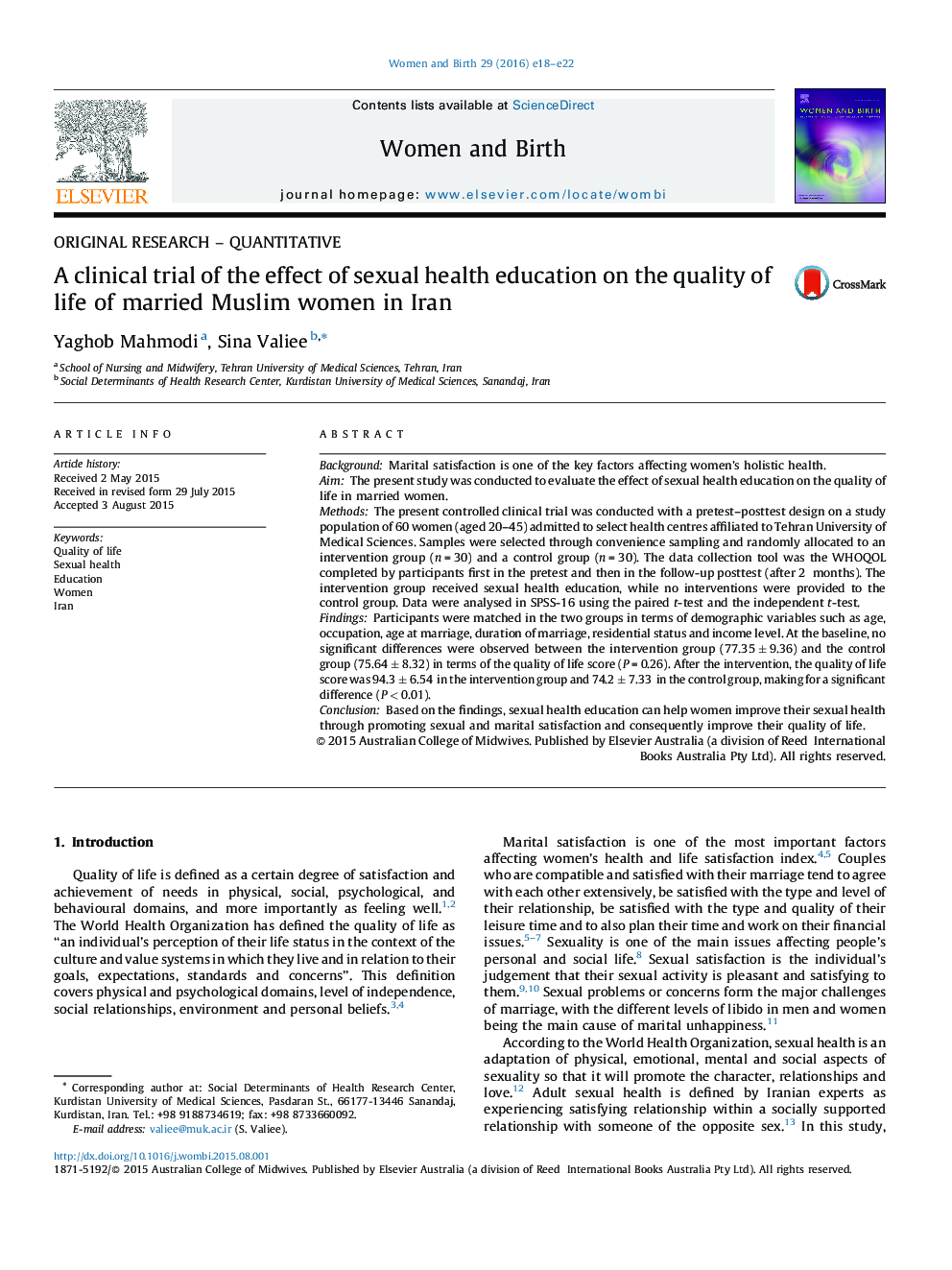| Article ID | Journal | Published Year | Pages | File Type |
|---|---|---|---|---|
| 2636449 | Women and Birth | 2016 | 5 Pages |
BackgroundMarital satisfaction is one of the key factors affecting women's holistic health.AimThe present study was conducted to evaluate the effect of sexual health education on the quality of life in married women.MethodsThe present controlled clinical trial was conducted with a pretest–posttest design on a study population of 60 women (aged 20–45) admitted to select health centres affiliated to Tehran University of Medical Sciences. Samples were selected through convenience sampling and randomly allocated to an intervention group (n = 30) and a control group (n = 30). The data collection tool was the WHOQOL completed by participants first in the pretest and then in the follow-up posttest (after 2 months). The intervention group received sexual health education, while no interventions were provided to the control group. Data were analysed in SPSS-16 using the paired t-test and the independent t-test.FindingsParticipants were matched in the two groups in terms of demographic variables such as age, occupation, age at marriage, duration of marriage, residential status and income level. At the baseline, no significant differences were observed between the intervention group (77.35 ± 9.36) and the control group (75.64 ± 8.32) in terms of the quality of life score (P = 0.26). After the intervention, the quality of life score was 94.3 ± 6.54 in the intervention group and 74.2 ± 7.33 in the control group, making for a significant difference (P < 0.01).ConclusionBased on the findings, sexual health education can help women improve their sexual health through promoting sexual and marital satisfaction and consequently improve their quality of life.
